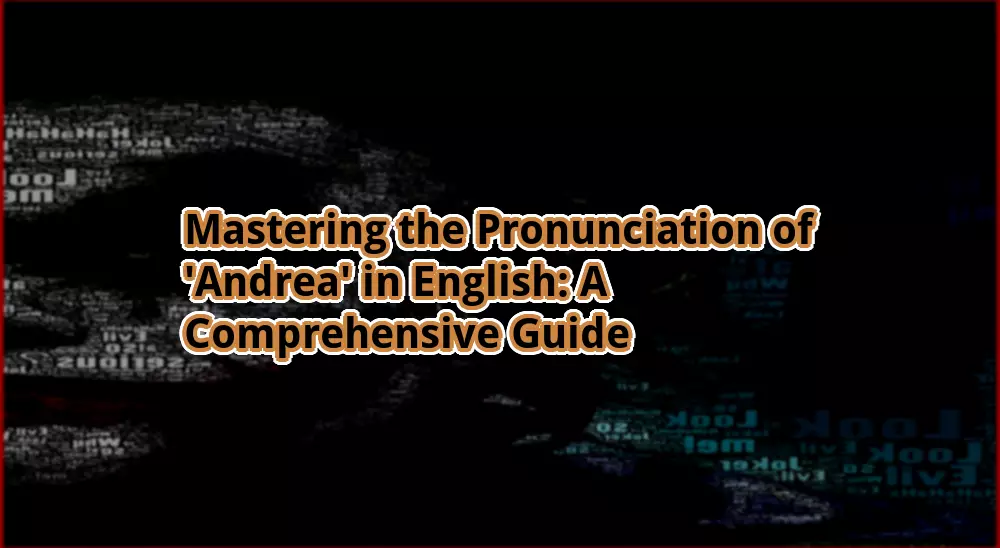Are you tired of stumbling over words, unsure if you're truly understood? Mastering pronunciation isn't just about saying words correctly; it's about opening doors to deeper understanding, forging stronger connections, and exuding confidence in every conversation.
The journey to perfect pronunciation, regardless of the language, is a worthwhile endeavor. Whether you're grappling with the subtle nuances of English, exploring the melodic sounds of Mandarin, or attempting the complex clicks of a Southern African tongue, the ability to articulate words accurately is fundamental. This comprehensive guide will delve into the essential elements of pronunciation, offering practical techniques and actionable advice to help you refine your skills and enhance your linguistic abilities. From understanding the mechanics of the International Phonetic Alphabet (IPA) to conquering the challenges of consonant assimilation, this resource will equip you with the tools you need to communicate effectively and confidently.
Let's begin by exploring the vital aspects of pronunciation.
- John Nettles 2024 A Deep Dive Into The Life And Career Of The Beloved Actor
- Exploring The Life Of Jerry Cantrells Son A Rising Star In The Music Industry
The content you provided encompasses a range of topics, each highlighting a different aspect of mastering pronunciation. We'll explore techniques for mastering specific words and phrases, and the benefits of investing in pronunciation as a component of language learning. The provided information makes several points, including:
- The importance of mastering pronunciation for effective communication.
- How the International Phonetic Alphabet (IPA) can improve pronunciation skills.
- The significance of understanding consonant assimilation.
- How dialect influences pronunciation.
| Topic | Description |
|---|---|
| Pronunciation in general | Mastering pronunciation is crucial for effective communication and enhances language proficiency. It is a journey that transforms communication skills and helps to connect with others on a deeper level. |
| International Phonetic Alphabet (IPA) | The IPA is a universally recognized system of phonetic notation used to represent each distinct sound found in human speech, regardless of language. |
| Consonant Assimilation | Understanding consonant assimilation is essential for mastering pronunciation in any language, allowing speakers to produce speech sounds that are accurate, fluent, and natural. |
| Dialects and Pronunciation | This involves recognizing how different dialects influence pronunciation, empowering effective communication in various contexts. |
| Specific Words and Phrases | The importance of mastering the pronunciation of individual words or phrases, such as "emotion," "draw," "liang," "Emmaus," "tachypnea," "deuter," "empire waist," and "stoicism." |
| Resources and Tips | Using resources like pronunciation guides, audio recordings, and expert consultations to enhance pronunciation skills. |
One critical aspect of language learning is the ability to pronounce words correctly. This allows you to be understood and, in turn, boosts confidence when speaking. Let us explore a few specific examples from the provided content, and learn the value of practice and dedicated learning.
Mastering the Pronunciation of "Emotion"
- Is Mark Harmon Still Alive The Truth Behind The Rumors
- Exploring Tv Shows Featuring Cha Eun Woo A Comprehensive Guide
The word "emotion" is used countless times daily, yet its correct pronunciation often presents a challenge. The goal should be clear, precise articulation. This entails paying careful attention to each syllable and the sounds they represent. You can utilize online pronunciation guides and audio recordings to hear native speakers and practice mimicking the sounds. Repetition is key: Saying the word aloud repeatedly helps to internalize the correct pronunciation. Furthermore, by focusing on the intonation patterns associated with the word, you can achieve a more natural and fluent delivery, which enhances understanding in any conversation.
Navigating the Sounds of British English
Understanding British English pronunciation is another critical area for aspiring language learners. The key aspects of pronunciation in British English can vary greatly from other dialects, especially American English. Practical tips to ensure natural-sounding speech often include imitating native speakers. When listening to audio recordings, focus on the subtle changes in vowel sounds, consonant articulation, and rhythm to sound more natural. You can further refine your pronunciation by studying the common sound changes found within British English. It often involves understanding the use of the schwa sound (a neutral vowel sound) and the differences in the "r" sound compared to American English.
Deciphering Mandarin Pronunciation
Mandarin Chinese has a unique sound system, and learning it involves mastering both syllables and tones. The pronunciation of the word "liang" provides a great example. The high front vowel sound "/i/", similar to the vowel sound in "sheep," must be correct for the word to be understood. Additionally, the rising tonecharacterized by an upward inflectionis crucial in Mandarin. When speaking Mandarin, it is crucial to note the tonal variations. Pronunciation also involves understanding the tones and how they affect the word meaning. Utilizing pronunciation guides and working with native speakers can help you practice these sounds and tones. Also, studying the IPA can significantly improve your accuracy and understanding of pronunciation, which allows you to communicate effectively.
Unlocking the Mysteries of "Th" Sounds in English
Mastering the English "th" sound is a challenge for many learners. "Th" has two key variations voiced and voiceless. In the voiced "th" (as in "this" or "that"), the tongue lightly touches the back of the front teeth while vibrating the vocal cords. For the voiceless "th" (as in "think" or "through"), the same tongue placement is used, but the vocal cords do not vibrate. The key is practice, and many people find it helpful to practice with tongue twisters. Paying attention to where your tongue and vocal cords are located will help you master these sounds, and the practice will improve your speech clarity. By focusing on the nuances, anyone can perfect this tricky English consonant and vastly improve their pronunciation.
Pronouncing Medical Terms
Accurate pronunciation is crucial in the medical field. Terms such as "tachypnea" need to be understood precisely. "Tachypnea" is a perfect example; its pronunciation requires understanding each syllable and the correct emphasis. To master it, you should practice by breaking the term down into syllables. Consulting medical dictionaries and audio recordings helps refine pronunciation, allowing you to correctly pronounce all the words with confidence. The goal of this is to prevent medical misunderstandings and facilitate better patient care, and is thus extremely important.
Mastering the Sounds of "Deuter"
Even seemingly simple words like "deuter" have nuanced pronunciations. Whether you're aiming for formal or informal pronunciation, understanding the correct articulation will improve your comprehension. Practice by repeating the word aloud to internalize the proper pronunciation. This is crucial, so it is often better to consult with linguists and language experts to help you master such complex words.
Accurate Pronunciation: The Key to Clear Communication
Correct pronunciation is fundamental to language. If you are seeking to be better understood, a focus on correct pronunciation is one of the most impactful ways to achieve this. Consider the word draw. To pronounce this word correctly, one must understand that it is a single syllable with a clear "d" sound at the beginning, followed by a blend of the "r" and "aw" sounds. This is easily mastered by practicing with native speakers or audio recordings, repeating the word to learn the sound and the mouth position. Similarly, words like "adequate" demand attention to syllable structure. Understanding that "adequate" is split into three distinct syllables"ad," "e," and "quate"helps in delivering the right sound for each part.
Understanding Pronunciation with the IPA
The International Phonetic Alphabet (IPA) is an invaluable resource for mastering pronunciation. It gives a standardized system to represent sounds, which removes the ambiguity that comes with written letters. Each symbol in the IPA corresponds to a single sound, allowing learners to pinpoint the specific sounds they need to produce. Using the IPA, you can find the proper pronunciation of words, even in unfamiliar languages. This promotes accuracy in every word.
Consonant Assimilation: An Essential Concept
Consonant assimilation is a key feature of pronunciation in many languages. It describes the changes that occur when consonants come together in speech. Understanding consonant assimilation helps learners speak more naturally and fluidly. By mastering these changes, you can communicate effectively and confidently.
Pronunciation Resources and AI Tools
Several resources can assist with pronunciation mastery. Pronunciation guides provide instructions on how to say words. Audio and video recordings allow learners to mimic native speakers, which helps refine their delivery. AI tools can also be helpful by analyzing speech and offering feedback.
The Influence of Dialects
Dialects greatly affect how words are pronounced. To communicate effectively, its essential to recognize and adapt to these dialectal variations. Whether you're learning to speak British English or navigating the complexities of various accents, understanding the role of dialects in pronunciation opens the door to language diversity, and makes your language skills more versatile.
The Power of Practice
Regular practice is vital for mastering pronunciation. Repeating words, phrases, and sentences aloud is the best way to refine your articulation. Imitate native speakers, and listen carefully to identify the nuances of correct pronunciation. The more you practice, the more natural your pronunciation becomes.
The fashion world often has its own specific vocabulary, with terms that can be difficult to pronounce. For example, "empire waist" refers to a specific style of dress. This is an example of a concept that, when understood, becomes easier to recognize and use in conversation. Mastering its pronunciation is key to clearly discussing fashion styles. Proper pronunciation of fashion terms ensures accurate communication in both formal and informal settings. By utilizing guides and seeking advice from fashion experts, one can master these crucial fashion terms. By learning the pronunciation, one can improve their language skills.
Mastering Complex Sounds
Mastering the pronunciation of English consonants is a crucial step in improving your overall speaking skills. English, with its often irregular spelling, can be especially challenging for those learning to speak. Focusing on the "th" sound (both voiced and voiceless) and other tricky sounds like "r" and "l" is essential. To do so, break down each sound and practice them repeatedly. Mimicking native speakers, listening to audio recordings, and using pronunciation guides will all help. Consistent practice and patient repetition are key to accurately mastering complex sounds and gaining confidence in your ability to speak clearly.
Additional Strategies for Improving Pronunciation
To truly elevate your pronunciation skills, you should consider the following tips:
- Immerse Yourself in the Language: Exposure to spoken language through movies, television shows, and music can greatly improve your ability to absorb pronunciation nuances.
- Record Yourself: Audio recording and playback allows you to identify areas for improvement and track your progress.
- Find a Language Partner: Speaking with a native speaker provides valuable feedback and the opportunity to practice in real-time.
- Use Pronunciation Guides: Look to authentic audio recordings and pronunciation guides, which help demonstrate the correct pronunciation of words.
- Focus on Consonant and Vowel Sounds: Make sure you understand the differences in consonant and vowel sounds.
When you take the time to improve your pronunciation, you're not just learning to speak a language; you're opening up a world of understanding and connection. Take heart that you are on a journey, and with patience and practice, the world of language will unfold before you.
- Elissa Patel And Brian Chesky A Deep Dive Into Their Lives And Impact
- Donnie Wahlberg And The Backstreet Boys A Deep Dive Into Their Connection


